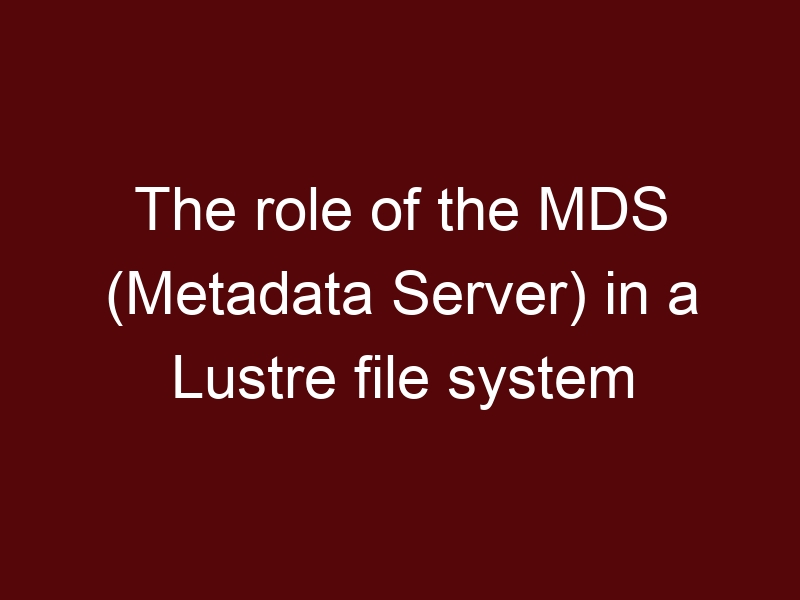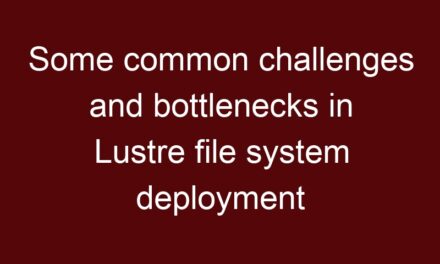The Metadata Server (MDS) plays a critical role in a Lustre file system. It is responsible for managing file system metadata, which includes information about the file and directory structure, file attributes (e.g., permissions, ownership), and access control information. The MDS facilitates efficient metadata operations and ensures data consistency across the Lustre file system. Here’s a more detailed explanation of the role of the MDS in a Lustre file system:
- Metadata Management: The MDS is responsible for storing and managing file system metadata. It maintains information about directories, files, and their attributes. When a client node initiates a metadata operation, such as creating a new file or modifying an existing file’s attributes, the MDS handles these requests.
- Metadata Distribution: In a Lustre file system, metadata is distributed across one or more MDSs to achieve scalability and load balancing. Each MDS manages a portion of the file system’s metadata, including specific directories and files. This distribution ensures that no single MDS becomes a performance bottleneck, and metadata operations can be efficiently parallelized.
- Metadata Coherency: Lustre uses distributed locks managed by the Distributed Lock Manager (DLM) to maintain coherency and consistency of metadata across multiple MDSs. The DLM ensures that concurrent metadata operations from different client nodes are coordinated properly, preventing conflicts and maintaining data integrity.
- Metadata Replication (Optional): To enhance availability and fault tolerance, Lustre can replicate metadata. This means that multiple MDSs can hold copies of the same metadata. If one MDS fails, other MDSs with replicated metadata can take over its responsibilities, providing continuous metadata service.
- Metadata Caching: To reduce the overhead of frequent metadata requests, client nodes employ metadata caching. When a client accesses a file or directory, the metadata is cached locally on the client node. Subsequent metadata requests for the same data can be served from the cache, reducing the need to access the MDS for every operation.
- Load Balancing: The Lustre file system dynamically balances the distribution of directories among MDSs based on workload and usage. This load balancing ensures that metadata operations are efficiently distributed across available MDSs and minimizes potential performance bottlenecks.
- High Availability: Lustre supports configurations with multiple MDS nodes in active-active mode. If one MDS node becomes unavailable due to failure or maintenance, the remaining MDS nodes continue to serve metadata operations, providing high availability and avoiding data access disruption.
In summary, the MDS is responsible for managing file system metadata in a Lustre file system. By distributing metadata across multiple MDSs, leveraging caching, and employing the DLM for coordination, Lustre ensures efficient metadata operations, scalability, and high performance in a distributed and parallel storage environment, making it suitable for high-performance computing and big data workloads.





